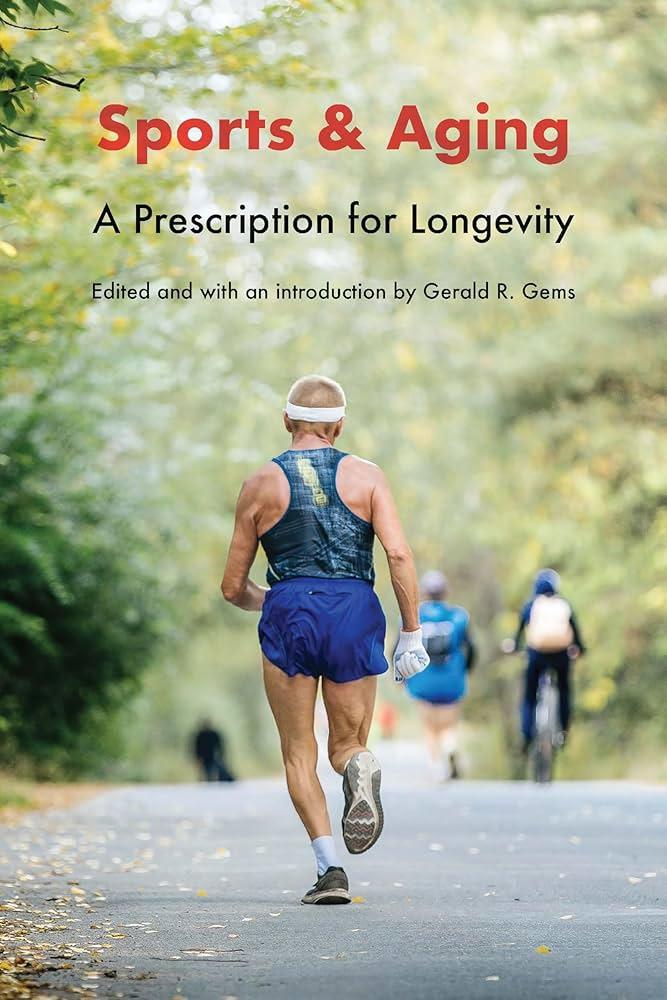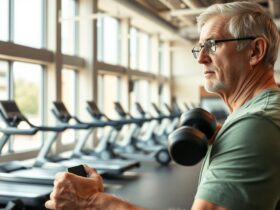Introduction: Unlocking the Secret to Athletic Longevity: The Role of Testosterone Therapy
In the world of sports and fitness, the quest for longevity is a pursuit both revered and challenging. Athletes, regardless of their discipline, face the inevitable passage of time that often brings with it the decline of performance and vitality. Yet, within this landscape of wear and tear, a topic has emerged that raises eyebrows and ignites conversations: testosterone therapy. While testosterone is often discussed in the context of masculinity and strength, its role in supporting the aging athlete is complex and multifaceted. As research unfolds, the relationship between testosterone levels and athletic performance has become a focal point for those seeking to extend their competitive years. This article delves into the intriguing realm of testosterone therapy, exploring its potential benefits, risks, and ethical considerations, as athletes navigate the fine line between enhancement and health. Join us as we uncover how this controversial treatment could hold the key to not just surviving, but thriving in the pursuit of athletic longevity.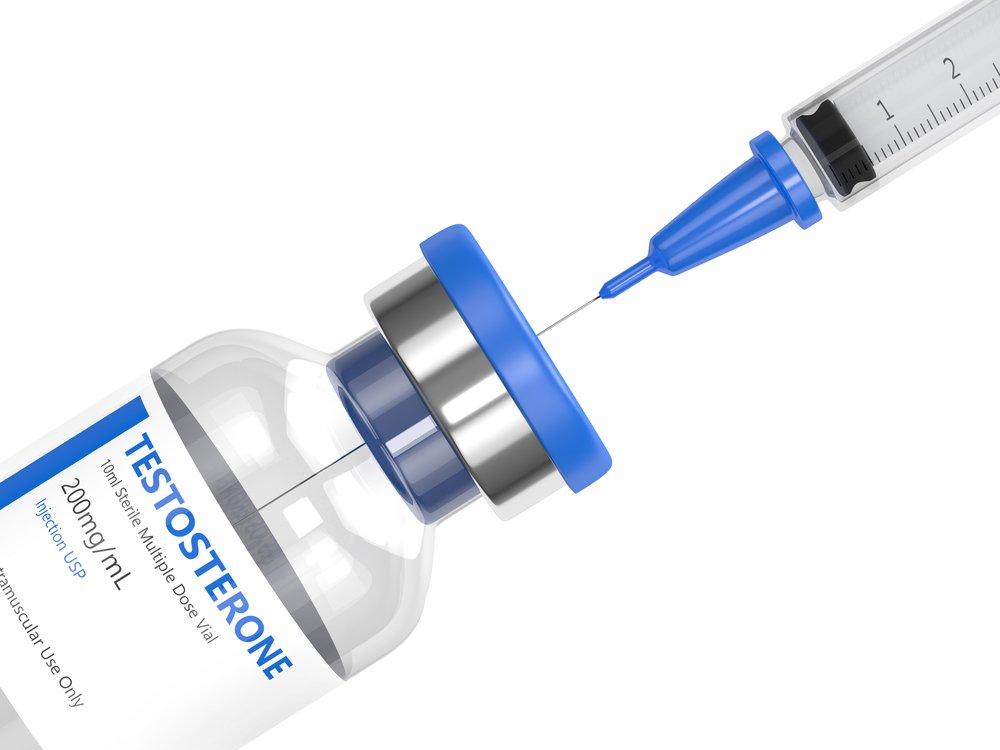
Exploring the Role of Testosterone in Athletic Performance
The relationship between testosterone and athletic performance is a multifaceted one, intertwining physiological effects with psychological impacts. As a key hormone, testosterone plays a vital role in muscle mass development, strength gains, and overall endurance. Athletes often seek to maximize their potential through various means, and understanding how testosterone influences their bodies can lead to informed decisions regarding training, recovery, and even testosterone therapy. The extensive benefits include:
- Increased Muscle Mass: Testosterone enhances protein synthesis, aiding in muscle repair and growth.
- Improved Recovery: Higher levels of testosterone may lead to faster recovery times post-exercise.
- Elevated Mood and Motivation: Testosterone can boost mood and mental focus, which are critical in competitive sports.
However, it’s essential to approach testosterone therapy with caution. The balance of hormones is crucial, as excessive testosterone can lead to adverse effects, including mood swings, aggression, and increased risk of health issues. Athletes considering therapy must undergo a comprehensive evaluation to understand their specific testosterone levels and potential benefits versus risks. Here’s a simple comparison table illustrating potential outcomes of therapy vs. natural testosterone production:
| Aspect | Testosterone Therapy | Natural Production |
|---|---|---|
| Muscle Growth | Accelerated | Gradual |
| Recovery Time | Shorter | Standard |
| Mood Stability | Variable | Consistency |
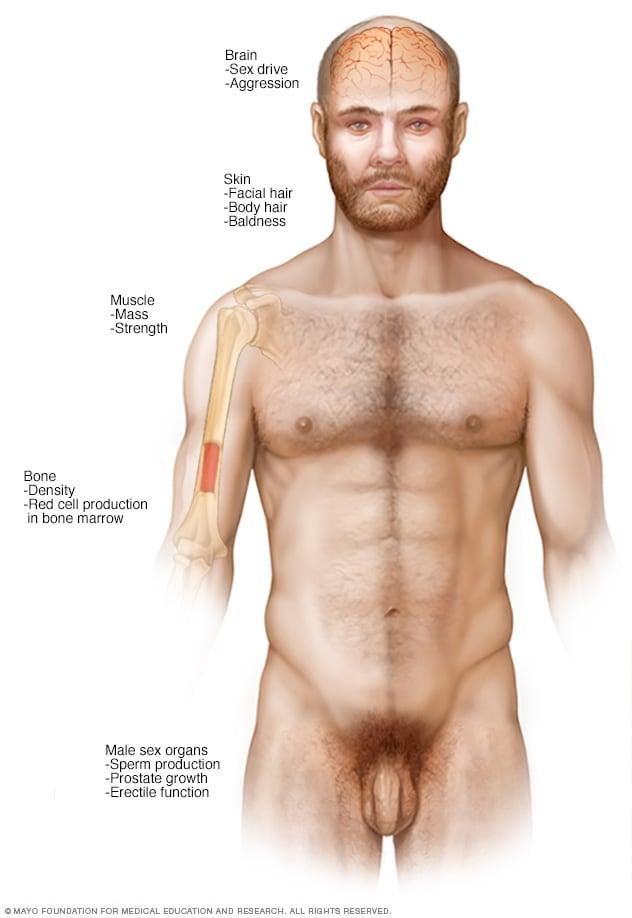
Understanding the Science Behind Testosterone Therapy
The intricacies of testosterone therapy extend beyond mere hormone replacement; they delve into the realm of physiological balance and peak performance. Testosterone, a critical androgen, plays a pivotal role in numerous bodily functions, including muscle mass maintenance, bone density enhancement, and overall energy regulation. In athletic contexts, optimal testosterone levels can lead to improved strength, endurance, and recovery rates. This therapy aims to reinstate hormonal equilibrium, especially when natural production wanes due to age or other factors. Understanding the biochemical pathways affected by testosterone can unveil its influential role in enhancing athletic longevity and performance.
Some science-backed benefits of testosterone therapy for athletes include:
- Increased Muscle Mass: Testosterone promotes protein synthesis, which can lead to an increase in muscle size and strength.
- Enhanced Recovery: Proper testosterone levels facilitate quicker recovery after intense workouts, reducing muscle soreness.
- Improved Bone Density: Higher testosterone can contribute to stronger bones, thereby lowering the risk of fractures.
- Elevated Mood and Energy Levels: Balanced testosterone can lead to improved mental clarity, focus, and motivation, crucial for athlete training.
Research indicates that while testosterone therapy shows promise for athletic performance, it must be approached with caution. Misuse can lead to adverse effects such as hormonal imbalances or health complications. A recent study highlighted the importance of monitoring testosterone levels and health markers diligently:
| Key Marker | Desired Range | Potential Effects of Imbalance |
|---|---|---|
| Testosterone Level (ng/dL) | 300 – 1000 | Low: Fatigue, Depression | High: Aggression, Acne |
| SHBG (Sex Hormone Binding Globulin) | 10 – 80 | Low: Imbalance | High: Reduced Free Testosterone |
| Estradiol (pg/mL) | 10 – 40 | Low: Bone Loss | High: Mood Swings |
Ultimately, testosterone therapy, when guided by healthcare professionals, can serve as a significant tool for athletes seeking to enhance their longevity and performance. By comprehending the underlying science, individuals can make informed choices tailored to their health and athletic aspirations.
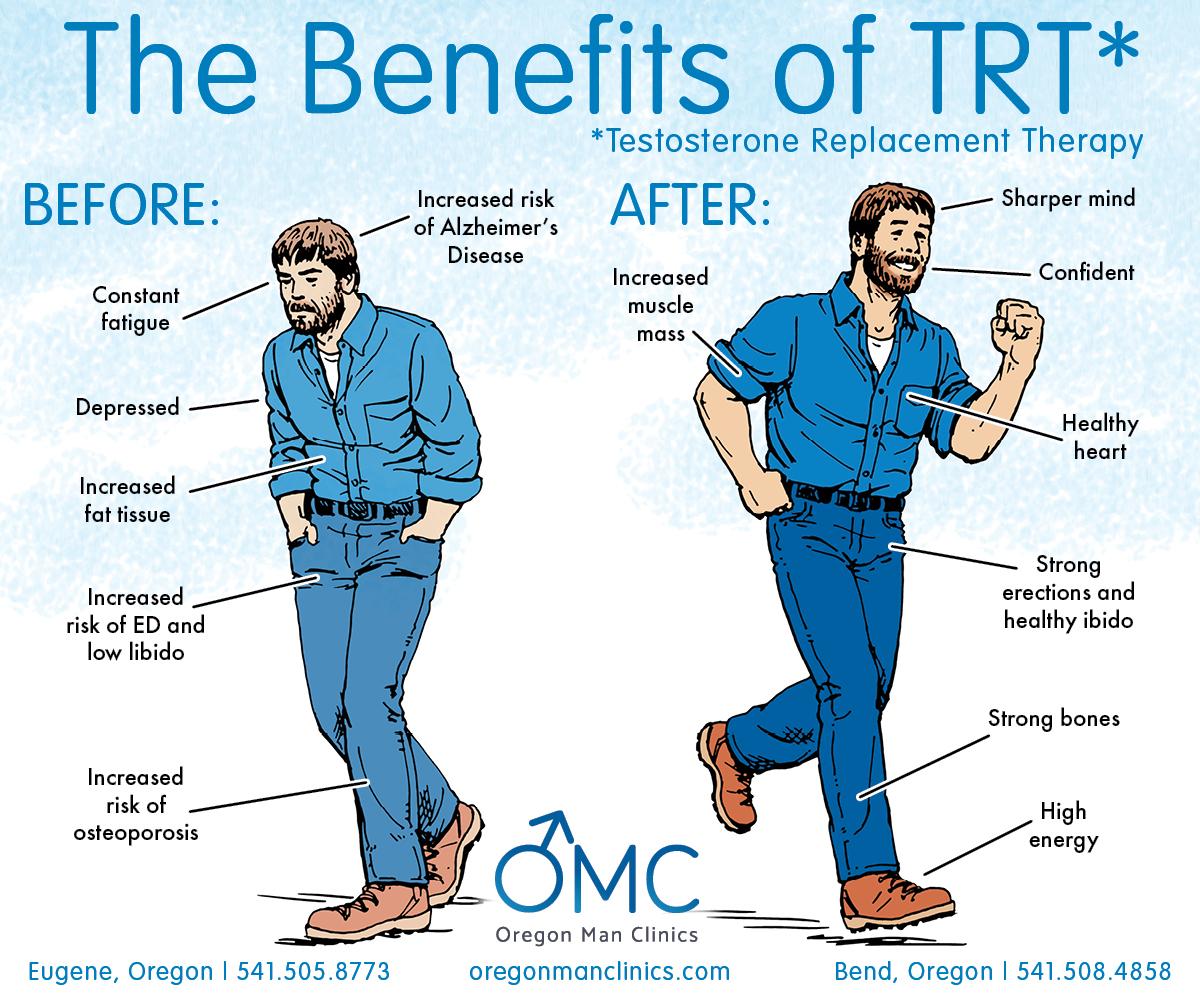
Benefits of Testosterone Therapy for Aging Athletes
For aging athletes, testosterone therapy can serve as a pivotal ally in preserving and enhancing physical performance. As hormone levels decline with age, athletes may experience diminished muscle mass, reduced strength, and a decline in endurance. Testosterone therapy aims to restore these levels, offering several benefits:
- Increased Muscle Mass: Testosterone is crucial for muscle growth, allowing aging athletes to maintain or regain muscle mass, which is vital for overall strength.
- Enhanced Recovery: Improved hormone levels can lead to quicker recovery times, enabling athletes to train more effectively and minimize downtime.
- Boosted Energy Levels: A boost in testosterone can provide a renewed sense of energy, helping athletes maintain their training regimens and activity levels.
- Improved Mood and Cognitive Function: Balanced hormone levels can help combat mood swings, depression, and cognitive decline, which are often linked to aging.
The impact of testosterone therapy extends beyond just physical performance; it can significantly enhance overall quality of life. By optimizing hormonal balance, aging athletes often report improvements in motivation and mental clarity, leading to better focus during training and competitions. The table below outlines some of the key enhancements that testosterone therapy can offer to aging athletes:
| Benefit | Description |
|---|---|
| Muscle Strength | Restoration of muscle power and endurance. |
| Bone Density | Reduction of osteoporosis risk through increased bone strength. |
| Fat Reduction | Improved metabolism, leading to lower body fat. |
| Heart Health | Support for cardiovascular wellness through improved circulation. |
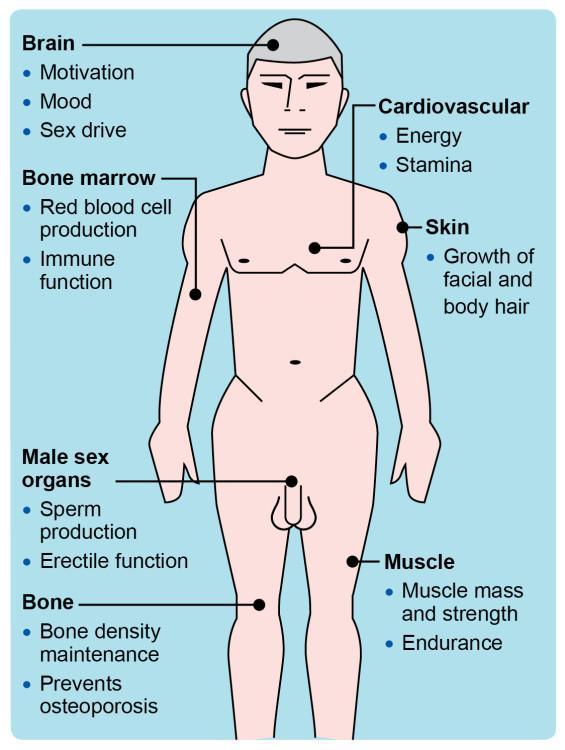
Evaluating the Risks and Considerations of Hormone Replacement
When considering testosterone therapy, it is crucial to weigh the potential benefits against the associated risks. While many athletes seek this treatment for increased energy, enhanced muscle mass, and overall vitality, the decision should not be made lightly. Some of the possible risks include:
- Cardiovascular Issues: An increase in testosterone levels can elevate red blood cell production, possibly leading to a heightened risk of blood clots and heart-related complications.
- Hormonal Imbalances: Introducing external testosterone can disrupt the body’s natural hormonal balance, potentially resulting in side effects such as gynecomastia or mood swings.
- Liver Problems: Oral testosterone therapies may place additional strain on the liver, leading to potential hepatotoxicity.
Furthermore, the ethical and regulatory considerations surrounding testosterone therapy are significant. Athletes must navigate the rules of their respective sports organizations, as using testosterone can be seen as an unfair advantage and may be banned. Understanding the broader implications of therapy entails contemplating:
- Long-term Health Effects: The long-term implications of testosterone therapy on overall health remain poorly understood and warrant careful consideration.
- Mental Health Impact: Hormonal fluctuations can influence mental health, leading to anxiety, depression, or aggressive behavior.
- Dependency Risks: Individuals may develop a psychological dependency on the perceived benefits of testosterone, leading to continued use despite adverse effects.
Personalizing Testosterone Treatment Plans for Optimal Results
Testosterone treatment plans should be tailored to the individual to achieve optimal health and performance. This personalized approach takes into account factors such as age, activity level, and specific health goals. To effectively create a regimen, practitioners often consider:
- Baseline Hormone Levels: Testing testosterone and related hormone levels to set benchmarks.
- Modality of Treatment: Choosing between injections, gels, or pellets based on patient preference and lifestyle.
- Frequency of Administration: Determining how often treatments should be administered for consistent hormone optimization.
- Monitoring Side Effects: Regular follow-ups to adapt treatment plans if necessary.
In addition to hormonal considerations, lifestyle factors play a critical role in therapeutic outcomes. A successful testosterone treatment plan may incorporate the following elements:
| Health Aspect | Recommended Strategy |
|---|---|
| Nutrition | Incorporate a balanced diet rich in healthy fats, proteins, and micronutrients. |
| Exercise | Combine resistance training with cardiovascular workouts to promote overall well-being. |
| Sleep Quality | Prioritize 7-9 hours of quality sleep each night to support hormonal balance. |
| Stress Management | Employ mindfulness techniques, such as yoga or meditation, to regulate cortisol levels. |
Integrating Nutrition and Exercise with Testosterone Therapy
Striking a balance between nutrition, exercise, and testosterone therapy can enhance the efficacy of treatment while promoting overall athletic performance. Proper nutrition serves as the foundation for optimal hormone function and supports the physical demands of an active lifestyle. Incorporating a variety of whole foods can stabilize blood sugar levels and sustain energy throughout workouts. Key components of an athlete’s diet may include:
- Lean Proteins: Essential for muscle repair and growth, options like chicken, fish, and legumes provide the amino acids crucial for recovery.
- Healthy Fats: Sources such as avocados, nuts, and olive oil contribute to hormone production and overall health.
- Complex Carbohydrates: Whole grains and vegetables offer the sustained energy necessary for prolonged training sessions.
Exercise should be strategically integrated with testosterone therapy to maximize its benefits. Resistance training, in particular, can significantly boost testosterone levels naturally, enhancing gains achieved through therapeutic measures. A well-structured workout plan could include:
- Strength Training: Compound movements like squats and deadlifts stimulate muscle growth and hormonal response.
- High-Intensity Interval Training (HIIT): Short bursts of intense activity can elevate testosterone and improve cardiovascular health.
- Flexibility and Recovery: Incorporating yoga or stretching can aid in reducing injury risks and improve overall well-being.
| Aspect | Nutrition Focus | Exercise Type |
|---|---|---|
| Muscle Building | Lean Proteins | Strength Training |
| Energy Sustainability | Complex Carbohydrates | HIIT |
| Recovery | Healthy Fats | Flexibility Workouts |
Monitoring and Adjusting Therapy for Long-Term Success
Effective management of testosterone therapy is crucial to achieving and maintaining optimal results. Regular monitoring allows practitioners to assess individual responses to treatment and make necessary adjustments. This ongoing assessment can include:
- Hormone Level Tests: Blood tests to check testosterone levels and ensure they remain within the target range.
- Physical Health Evaluations: Comprehensive check-ups to monitor heart health, metabolic function, and potential side effects.
- Performance Tracking: Keeping a record of athletic performance metrics to gauge the therapy’s impact on endurance, strength, and recovery.
Adjustments in therapy might be required if hormonal levels deviate from the desired range or if unwanted side effects arise. A tailored approach can involve:
- Dosing Changes: Modifying the dosage based on feedback from hormone tests and overall well-being.
- Alternative Administration Methods: Exploring different delivery systems such as injections, gels, or patches to enhance efficacy.
- Supplemental Nutritional Strategies: Integrating dietary changes or additional supplements to support hormonal balance and athletic performance.
| Adjustment Type | Considerations |
|---|---|
| Dosing Changes | Assess patient response and adjust according to lab results. |
| Administration Methods | Find the most effective and comfortable delivery for the individual. |
| Supplemental Strategies | Align nutrition with therapy goals for enhanced outcomes. |
Q&A
Q: What is testosterone therapy and how does it relate to athletic longevity?
A: Testosterone therapy involves the administration of synthetic testosterone to elevate levels of this hormone in individuals who may have low levels due to aging, health issues, or other factors. For athletes, maintaining optimal testosterone levels can be pivotal for performance, recovery, and overall well-being. Many advocates assert that appropriate use of testosterone therapy can enhance athletic longevity, allowing athletes to maintain their performance levels as they age.
Q: Who is an ideal candidate for testosterone therapy?
A: The ideal candidate for testosterone therapy is typically an individual who has been medically evaluated and diagnosed with low testosterone levels, often referred to as hypogonadism. Common signs that may lead an athlete to seek therapy include fatigue, decreased strength, mood fluctuations, and reduced libido. It’s crucial for prospective candidates to consult healthcare professionals who specialize in hormone therapy to assess the benefits and risks specific to their circumstances.
Q: Are there any risks associated with testosterone therapy for athletes?
A: Indeed, while testosterone therapy can offer benefits, it is not without risks. Potential side effects range from mild, such as acne and mood swings, to serious, including cardiovascular issues, increased risk of prostate cancer, and hormonal imbalances. The long-term effects are still under research, which raises the need for careful monitoring by medical professionals. Athletes must weigh these risks against potential performance benefits and should only consider therapy after thorough discussions with their healthcare provider.
Q: How might testosterone therapy influence athletic performance?
A: Testosterone plays a significant role in muscle mass, strength, and recovery—all crucial factors in athletic performance. For those with clinically low testosterone, therapy may enhance muscle protein synthesis, leading to improved strength and stature. Additionally, it can potentially aid in faster recovery from injuries. However, for athletes with normal testosterone levels, the benefits may be less pronounced, and using testosterone for performance enhancement may be considered doping in competitive sports.
Q: Has testosterone therapy been subject to controversy in the world of sports?
A: Yes, testosterone therapy has sparked considerable debate and controversy, particularly regarding its use as a performance-enhancing drug. In professional sports, the line between therapy and enhancement can blur, leading to strict regulations against its non-therapeutic use. Organizations like the World Anti-Doping Agency (WADA) have guidelines concerning testosterone use, categorizing it as a banned substance unless prescribed medically for legitimate health reasons. This makes it crucial for athletes to navigate the regulatory landscape diligently.
Q: What should athletes consider before starting testosterone therapy?
A: Before embarking on testosterone therapy, athletes should consider several factors. First, they should undergo comprehensive testing to determine their hormone levels. Next, they should engage in a detailed discussion with a healthcare professional regarding their specific circumstances, the expected benefits, and potential risks. they should carefully evaluate the legal implications in their sport and weigh the therapy against natural methods of maintaining hormone levels, such as exercise, nutrition, and lifestyle changes.
Q: What does the future hold for testosterone therapy in athletics?
A: As research continues to evolve, the landscape of testosterone therapy in athletics may significantly change. Ongoing studies seek to better understand not just the benefits and risks, but also the long-term effects on aging athletes. The quest for balance between performance enhancement and ethical considerations will likely shape future policies and attitudes around hormone therapy, making it a dynamic topic in the sports community. Athletes must stay informed to make educated choices about their health and longevity in the field.
To Conclude
In the realm of athletic performance and longevity, testosterone therapy emerges as a topic of significant interest and debate. As athletes and fitness enthusiasts seek ways to maintain their edge, understanding the nuanced role of testosterone becomes essential. While the allure of enhanced endurance, strength, and recovery is compelling, it is crucial to approach this therapy with careful consideration of the potential benefits and drawbacks.
As we navigate the complexities surrounding hormone therapy, one thing remains clear: the pursuit of athletic longevity is a multifaceted journey that goes beyond supplementation. It encompasses a holistic approach to health, integrating nutrition, training, recovery, and mental well-being.
whether testosterone therapy serves as a cornerstone or a supplementary tool in one’s athletic arsenal, informed decisions rooted in evidence and individual context will pave the way for achieving sustainable performance. Ultimately, the quest for longevity in athletics is as much about balance and awareness as it is about breaking records—inviting athletes to explore the full spectrum of their potential while honoring the limits of their bodies.

